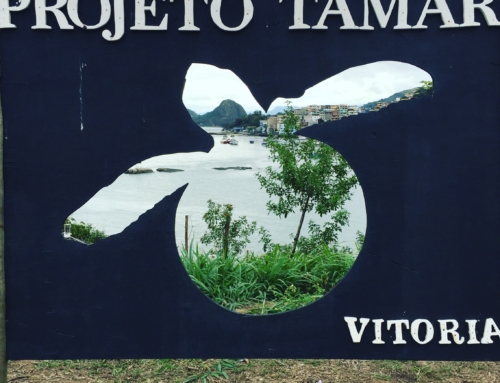In his book,  , British journalist Alex Bellos quotes the Brazilian playwright Nelson Rodrigues, “Everywhere has its irremediable national catastrophe, something like a Hiroshima. Our catastrophe, our Hiroshima, was the defeat by Uruguay in 1950.”
, British journalist Alex Bellos quotes the Brazilian playwright Nelson Rodrigues, “Everywhere has its irremediable national catastrophe, something like a Hiroshima. Our catastrophe, our Hiroshima, was the defeat by Uruguay in 1950.”
Rodrigues isn’t talking about a war. Uruguay beat Brazil in the final match of the 1950 World Cup.
Yes, a Brazilian compared losing a soccer game to having an atomic bomb land on your head. I might find this comparison less disturbing if Brazil had lost to Uruguay in a border skirmish or some type of military engagement. Comparing the decimation of a city to the loss of a sporting event lacks just a little perspective.
Or does it?
Bellos devotes an entire chapter to recounting this single match. He interviews everyone involved, from the Uruguayan who scored the winning goal to contemporary football anthropologists who study the match. The resulting picture is that of a nation which was ready to announce its global presence and the dawning of a new era in Brazil. Winning their first World Cup, at home in Brazil, would be the grand opening of modern Brazil.
As a showcase of the big future in store for the country, Brazilians built the largest stadium in the world. In 2 years. One reporter said the stadium gave the nation “a new soul.”
The Maracanã, in Rio de Janeiro, is the most iconic stadium in the world. On July 16, 1950, it set a record for the largest sports crowd ever. 173,850 fans entered with paid tickets. Combined with the dignitaries, journalists and special guests in attendance the crowd was estimated to be over 200,000 people. Approximately, 199,999 of those people were cheering for Brazil. One Uruguayan player brought his mother.
By 1950 soccer, or futebol, had become a core piece of Brazilian identity. A love of soccer was one of the few truly unifying traits of a diverse and expectant country. Brazil had crushed, decimated, humiliated Spain (6-1) and Sweden (7-1) in the preceding final matches. Rio’s O Mundo had already printed its front page: “These are the World Champions” alongside a picture of the Brazilian team. It was destiny for Brazil to win its first Cup on home turf in the greatest stadium in the world.
Then they lost. The final score was 2-1.
Destiny, it seemed, had it in for Brazil. At least, that’s what one Brazilian writer, José Lins do Rego, thought. After watching people leave the stadium in tears, Rego wrote, “it stuck in my head that we really were a luckless people, a nation deprived of the great joys of victory, always pursued by bad luck, by the meanness of destiny.” The loss plunged the entire population into a crisis of self doubt.
That game was wrapped up in nationhood and identity. The loss was taken as a reflection on the nation. Brazil lost because Brazilians are losers. They are a “luckless people.” I still sense a hint of this fatalist attitude in many aspects of Brazilian culture today. So maybe it’s a fair comparison, hiroshima and the 1950 World Cup. Both impacted an entire nation. The consequences can still be felt…
You know what? Bullshit. Who am I kidding? You can’t compare a soccer game to the devastation of an atom bomb. You just can’t. There is no comparison. What can be said is that no single sporting event has impacted a country the way the 1950 final shaped Brazil and that you can’t know Brazil without knowing soccer.
All of the information for this post came from Alex Bellos’ book Futebol The Brazilian Way of Life. It is a great read. Fun, informative, surprising. Bellos uses soccer as a means of analyses for the country as a whole. Anyone interested in Brazil or soccer should buy it immediately.





